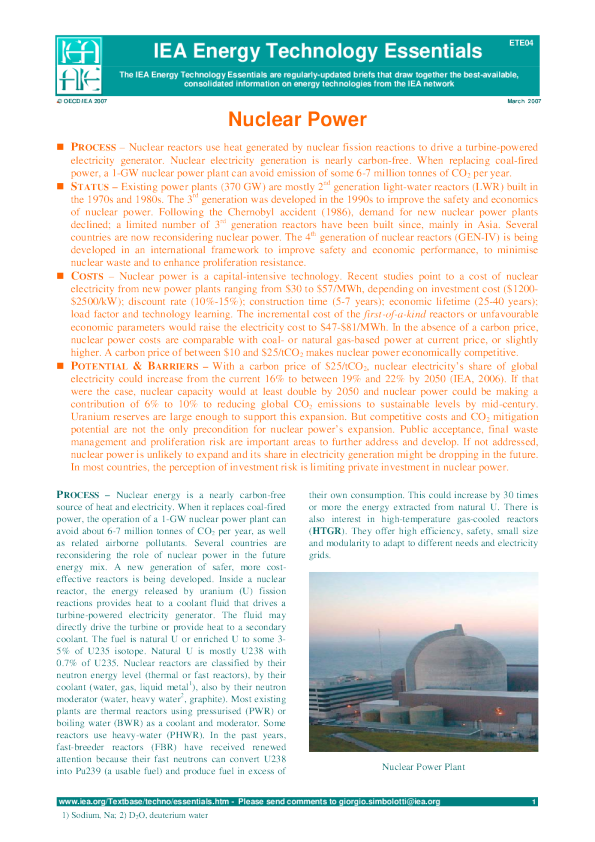IEA Energy Technology Essentials: Fuel Cells
 AI智能总结
AI智能总结IEA Energy Technology Essentials: Biofuel Production
Key Points:
Biofuel Types and Processes:
- Bioethanol: Produced from starch or sugar-rich biomass like corn, sugar cane, and others through conversion to sugar, fermentation, and distillation. Advanced processes involve ligno-cellulosic biomass, where hydrolysis, fermentation, and distillation are utilized.
- Biodiesel: Extracted from vegetable oils, used cooking oils, and animal fats, then esterified with alcohols. Advanced processes include hydrogenation of oils, gasification, and catalytic conversion to liquid fuels.
Energy Input and Emissions:
- Sugar-cane ethanol: Has fossil fuel input varying from 10%-12% of final energy, offering up to 90% CO2 reduction compared to gasoline.
- Corn ethanol: Requires a higher energy input with CO2 reductions ranging from 15%-25%.
- Ligno-cellulosic ethanol: May have a higher total energy input but can achieve CO2 reductions up to 70% (100% with power co-generation).
- Biodiesel: About 30% energy input with CO2 reductions up to 60%.
Costs:
- Costs are highly sensitive to feedstock, process, land type, and crop yield. Indicative costs vary significantly across regions.
Potential:
- Ethanol: Can fuel gasoline vehicles with minimal engine modifications, especially in blends of 5%-10%. Flexi-fuel vehicles can run on up to 85% blends. Potential market: 45 EJ by 2050.
- Biodiesel: Low blends (B5-B10) can fuel diesel vehicles without changes, with low sulfur and particulate emissions. Potential market: 20 EJ by 2050.
Barriers:
- Cost, competition with food and fiber production, regional market structure, biomass transport cost, agricultural practices, water and fertilizer use, bio-diversity conservation, logistics, and distribution networks.
Process:
- Conventional Bioethanol: Based on enzymatic conversion of starch and sugar into sugars, fermentation, and distillation. Utilizes many feedstocks including corn, sugar cane, sugar beets, potatoes, sorghum, and cassava. Co-products help reduce production costs.
- Advanced Bioethanol: Focuses on utilizing all ligno-cellulosic materials for better conversion efficiency, expanding feedstock variety and quantity, and increasing land availability.
Biodiesel:
- Based on trans-esterification of vegetable oils and fats with methanol (or other alcohols) and a catalyst. Advanced processes include hydrogenation of oils and fats, producing biodiesel compatible with diesel fuel and engines.
Summary: The report highlights the complexities and advancements in biofuel production, emphasizing the need for improved efficiency, reduced costs, and sustainable practices. Bioethanol from ligno-cellulosic feedstock shows promise in enhancing feedstock variety and quantity, while biodiesel production explores innovative methods for increased efficiency and compatibility with existing infrastructure. The potential for biofuels in reducing environmental impact and energy security is significant, yet challenges related to costs, competition, and sustainability remain critical areas for improvement.





